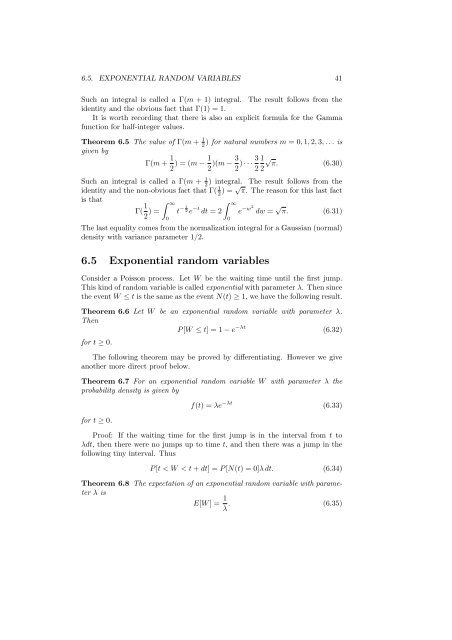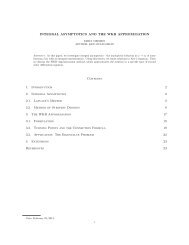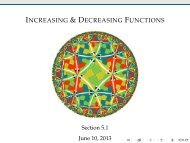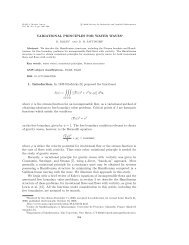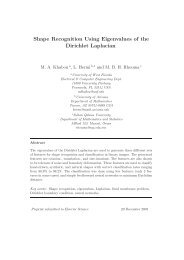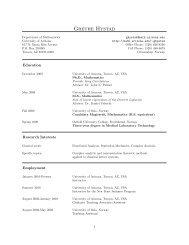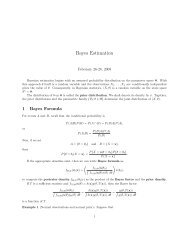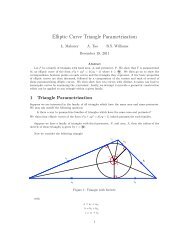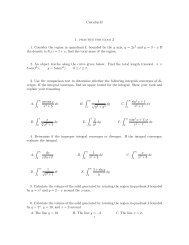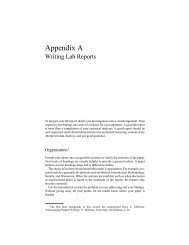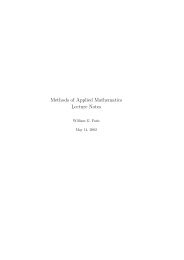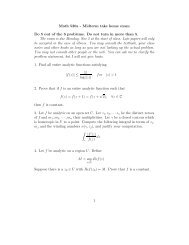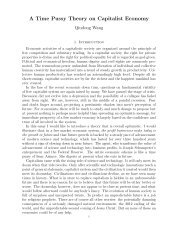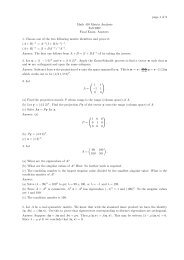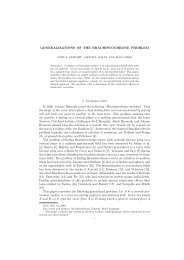Lectures on Elementary Probability
Lectures on Elementary Probability
Lectures on Elementary Probability
Create successful ePaper yourself
Turn your PDF publications into a flip-book with our unique Google optimized e-Paper software.
6.5. EXPONENTIAL RANDOM VARIABLES 41<br />
Such an integral is called a Γ(m + 1) integral. The result follows from the<br />
identity and the obvious fact that Γ(1) = 1.<br />
It is worth recording that there is also an explicit formula for the Gamma<br />
functi<strong>on</strong> for half-integer values.<br />
Theorem 6.5 The value of Γ(m + 1 2<br />
) for natural numbers m = 0, 1, 2, 3, . . . is<br />
given by<br />
Γ(m + 1 2 ) = (m − 1 2 )(m − 3 2 ) · · · 3 1√ π. (6.30)<br />
2 2<br />
Such an integral is called a Γ(m + 1 2 ) integral. The result follows from the<br />
identity and the n<strong>on</strong>-obvious fact that Γ( 1 2 ) = √ π. The reas<strong>on</strong> for this last fact<br />
is that<br />
Γ( 1 ∫ ∞<br />
∫ ∞<br />
2 ) = t − 1 2 e −t dt = 2 e −w2 dw = √ π. (6.31)<br />
0<br />
The last equality comes from the normalizati<strong>on</strong> integral for a Gaussian (normal)<br />
density with variance parameter 1/2.<br />
6.5 Exp<strong>on</strong>ential random variables<br />
C<strong>on</strong>sider a Poiss<strong>on</strong> process. Let W be the waiting time until the first jump.<br />
This kind of random variable is called exp<strong>on</strong>ential with parameter λ. Then since<br />
the event W ≤ t is the same as the event N(t) ≥ 1, we have the following result.<br />
Theorem 6.6 Let W be an exp<strong>on</strong>ential random variable with parameter λ.<br />
Then<br />
P [W ≤ t] = 1 − e −λt (6.32)<br />
for t ≥ 0.<br />
The following theorem may be proved by differentiating. However we give<br />
another more direct proof below.<br />
Theorem 6.7 For an exp<strong>on</strong>ential random variable W with parameter λ the<br />
probability density is given by<br />
for t ≥ 0.<br />
0<br />
f(t) = λe −λt (6.33)<br />
Proof: If the waiting time for the first jump is in the interval from t to<br />
λdt, then there were no jumps up to time t, and then there was a jump in the<br />
following tiny interval. Thus<br />
P [t < W < t + dt] = P [N(t) = 0]λ dt. (6.34)<br />
Theorem 6.8 The expectati<strong>on</strong> of an exp<strong>on</strong>ential random variable with parameter<br />
λ is<br />
E[W ] = 1 λ . (6.35)


